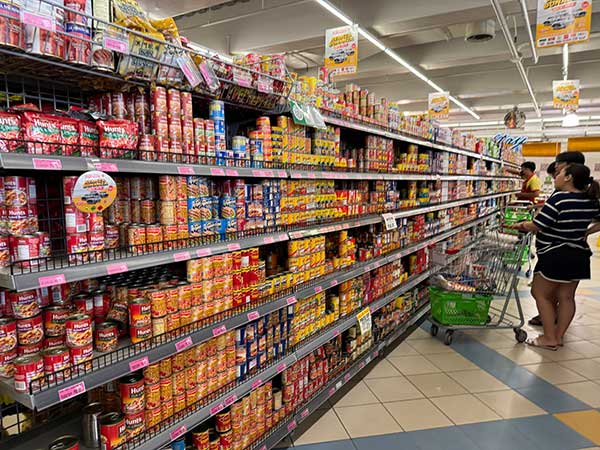
By Mariela Angella Oladive
Western Visayas recorded a 3.4% inflation rate in September 2024, the highest among non-NCR areas, according to the Philippine Statistics Authority (PSA).
The latest figure is a significant decrease from 4.9% in August and 6.6% in September 2023.
In a press conference, Marlene Y. Alviar, Chief Statistical Specialist of PSA Region VI, attributed the inflation drop primarily to the slower annual increase in food and non-alcoholic beverages, which posted a 3.3% inflation rate. This category contributed 79.4% to the overall slowdown.
The transport sector also played a key role, registering a negative inflation rate of -2.1% in September, a sharp drop from 0.7% in August.
Other commodities that contributed to the slowdown include education services, which saw inflation fall from 10.3% to 8.1%, alcoholic beverages and tobacco (3.3% from 3.7%), and personal care services (2.8% from 3.2%).
Food inflation relief was notable, with the index for vegetables, tubers, plantains, cooking bananas, and pulses registering a significant decrease of -8.9% in September, down from 2.4% in August.
Cereals and cereal products also showed a slowdown, with inflation dropping from 12.1% to 9.9%.
However, some commodities experienced a slight uptick, including clothing and footwear (3.8% from 3.6%), health (3.1% from 3.0%), and furnishings and household maintenance (2.5% from 2.4%).
All provinces in Western Visayas saw a decline in inflation from August to September.
Aklan posted the lowest inflation rate at 2.3%, while Guimaras had the highest at 4.7%.
Iloilo City’s inflation rate dropped to 2.8% from 3.7% in August, and Bacolod City’s inflation fell from 5.7% to 3.9%.
Chief Statistical Specialist Nelida C. Amolar acknowledged that while Western Visayas continues to lead non-NCR regions in inflation, the difference from other regions is minimal.
Amolar noted that the drop in vegetable and meat prices was offset by reduced production, which only contributed modestly to the inflation slowdown.
She expressed optimism that inflation would ease further in the coming months, citing efforts by the Department of Trade and Industry (DTI) to stabilize prices, especially for holiday goods such as ham.
“We encourage tightening budgets and reducing unnecessary food consumption to better manage inflation’s impact, especially since food contributes a significant portion to our inflation rate,” Amolar said.























